Few things are as frustrating as a noisy parakeet. You may wonder why my parakeet is squawking and what you can do to stop the noise.
This article will explore why your parakeet might be making noise and how you can train them not to squawk.
We will also provide tips for keeping your bird happy and healthy.
So, read on if you’re at your wit’s end with all the squawking!
1. Why Is My parakeet squawking?
There are a few reasons why your parakeet might be squawking.
The first is that they are trying to get your attention. Parakeets are social creatures and crave interaction. If you have been neglecting your bird, it may start squawking to get your attention.
Another reason for the noise could be that your parakeet is bored. If they are not getting enough stimulation, they may start to make noise out of boredom.
It could also be that your bird is sick or in pain. If you notice that other strange behaviors accompany your parakeet’s squawking, it is best to take them to the vet to rule out any health problems.
2. What do different types of squawks mean
Your parakeet may make different types of squawks, each with its own meaning.
Fear And Annoyance:
A high-pitched, shrill squawk is usually a sign that your parakeet is afraid or annoyed. A loud noise or sudden movement could cause this.
Hunger And Thirst:
A soft, quiet squawk may mean your bird is hungry or thirsty. If you notice this type of squawk, make
Pain:
If your parakeet is in pain, it may make a low, raspy squawk. An injury or illness could cause this. If you think your bird is in pain, it is best to take them to the vet as soon as possible.
Wanting Attention:
A steady, repetitive squawk may mean that your bird wants your attention. As we mentioned before, parakeets are social creatures and crave interaction. If you have been neglecting your bird, it may start squawking to get your attention.
Joy:
Sometimes, your parakeet may just be squawking for the joy of it! I
f you notice your bird making happy noises, it is a good sign that they are healthy and happy.
3. How to train your parakeet not to squawk
There are a few reasons why you might want to train your parakeet not to squawk.
Maybe the noise is driving you crazy, or you are worried that the squawking will disturb your neighbors. Whatever the reason, you can do a few things to train your bird to be quieter.
Let’s discover them together :
Spend Time with your parakeet
If your parakeet is squawking for attention, the best thing to do is give them more attention.
Spend more time playing with them and talking to them. This will help to satisfy their need for interaction and may help to stop the noise.
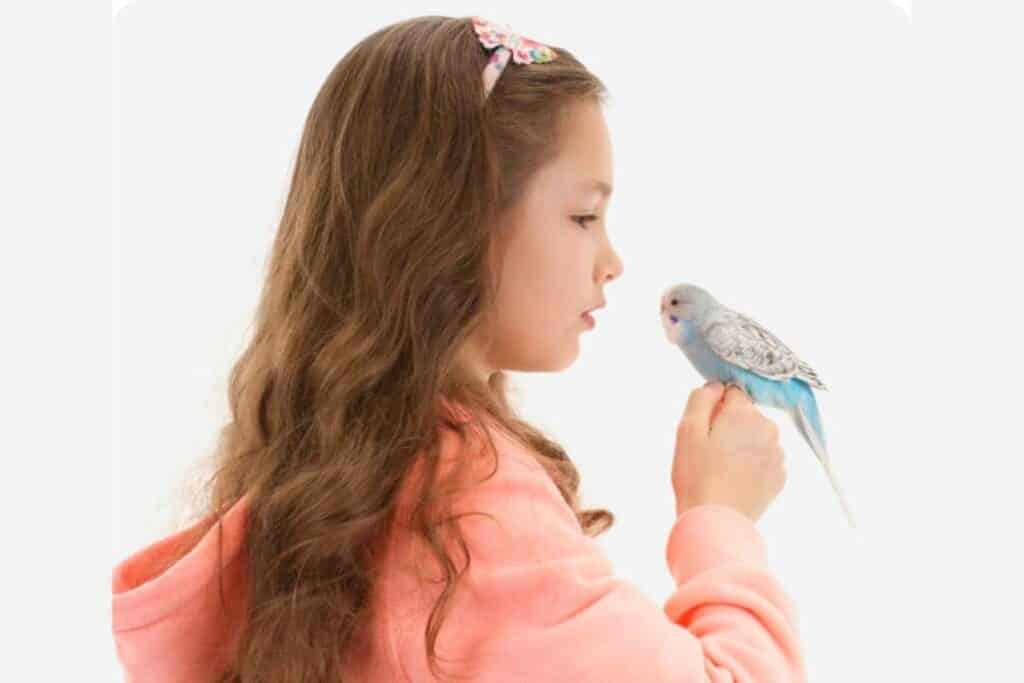
Try moving the Cage
If your parakeet is squawking because they are bored, try moving their cage to a different location. This will give them something new to look at and may help to stop the boredom-induced squawking.
Give them More Toys
If your bird is bored, one way to help is to give them more toys. There are a variety of toys available for parakeets, and you can make some yourself.
Give them a few new toys to play with and see if that helps to stop the squawking.
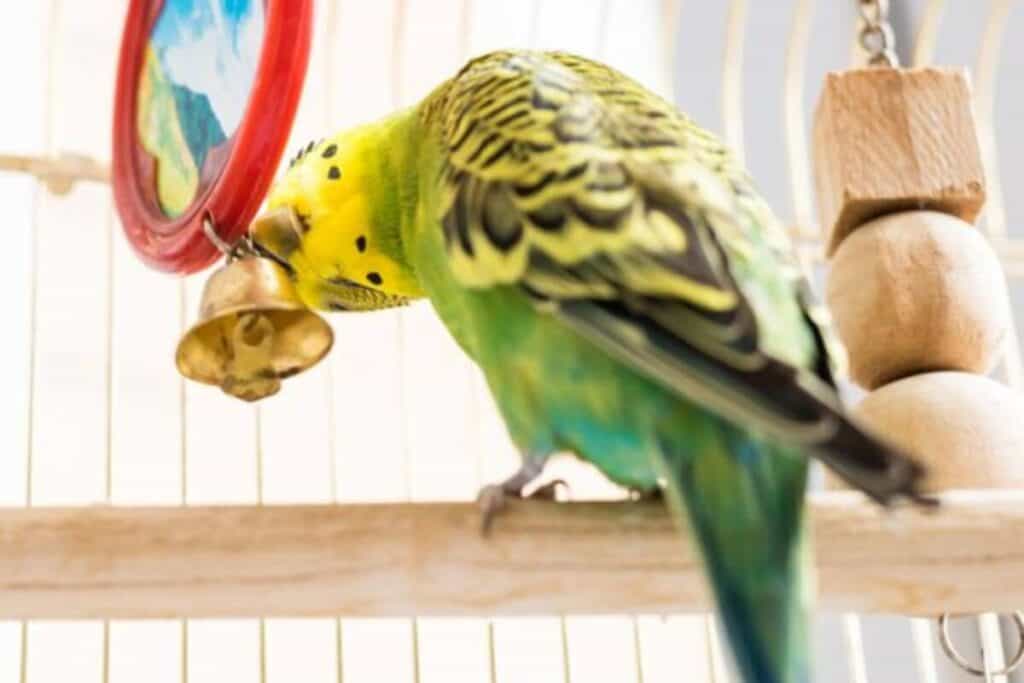
A Squirt Bottle Can Interrupt Aggressive Behavior
If your parakeet is squawking aggressively, you can try using a squirt bottle to interrupt the behavior.
Fill the bottle with water and give your bird a squirt whenever they start to squawk.
This will help to teach them that squawking leads to an unpleasant experience.
Habituation Helps to Socialize Them
If your parakeet is squawking because they are afraid, you can try to socialize them by habituating them to the things that scare them.
This means exposing them to the scary thing for short periods until they get used to it and stop being afraid.
For example, if your bird is afraid of loud noises, you can slowly expose them to louder and louder noises until they stop being afraid.
4. Tips for keeping your parakeet happy and healthy.
In addition to training your parakeet not to squawk, there are a few other things you can do to keep them happy and healthy.
Provide a nutritious diet:
Parakeets need a diet that is high in protein and low in fat. A good diet for a parakeet includes fresh vegetables and fruits, as well as a high-quality seed mix.
If you want to learn more about what food is good for parakeets, please read our article.

Give them a dust bath:
Parakeets need to take dust baths to keep their feathers clean and healthy. You can buy a dust bath at your local pet store or make one yourself.
Mix some fine sand with a little water to make a dust bath. Put the mixture in a shallow dish and let your bird bathe for about 10 minutes.
Read our article about budgie bathtub guide.
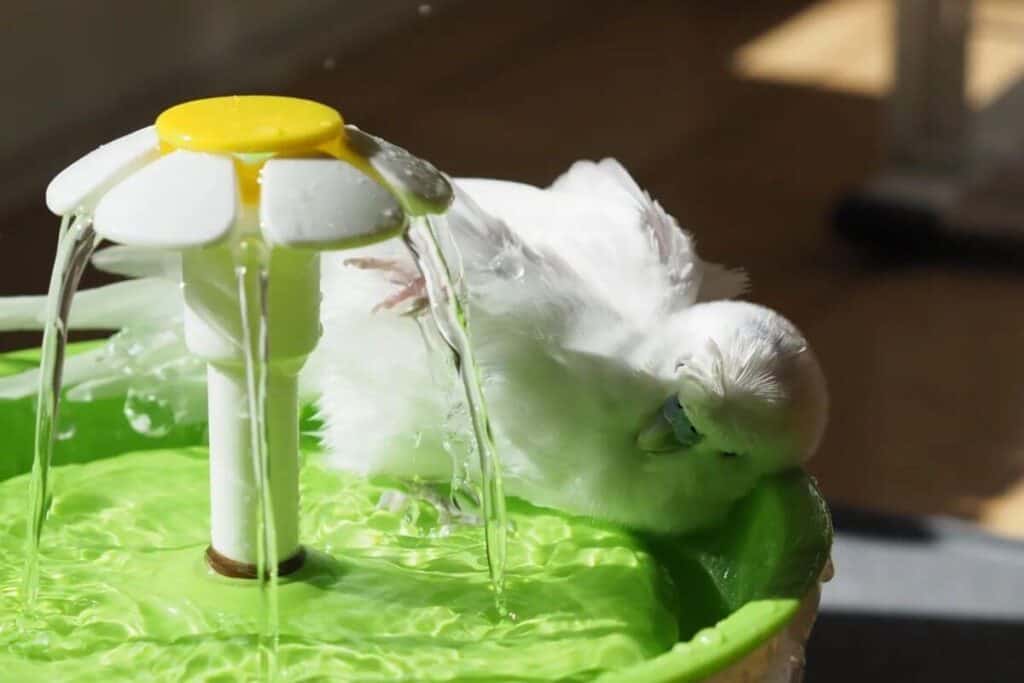
Provide a good environment:
To be happy and healthy, parakeets need a clean cage with plenty of space to move around.
Nature’s Miracle Bird Cage Cleaner penetrates to eliminate embedded, strong cage odors.
Provide perches and toys:
Parakeets also need perches and toys in their cage. Perches give them somewhere to rest and play, and toys help to keep them entertained.
Some good toys for parakeets include swings, ladders, and mirrors.
The Mini Flying Trapeze bird toy by Super Bird Creations is the perfect size for perfect size for Parrotlets, Parakeets, Cockatiels, Lovebirds and similarly sized pet birds.
Final Thoughts
If you have a squawking parakeet, you can do a few things to train them not to squawk.
The best way to stop the noise is by giving them attention, providing them with toys and perches, and socializing them.
In addition, make sure to provide your bird with a nutritious diet and a clean environment.
We hope you found this article helpful. If you have any questions or comments, please feel free to leave them below.

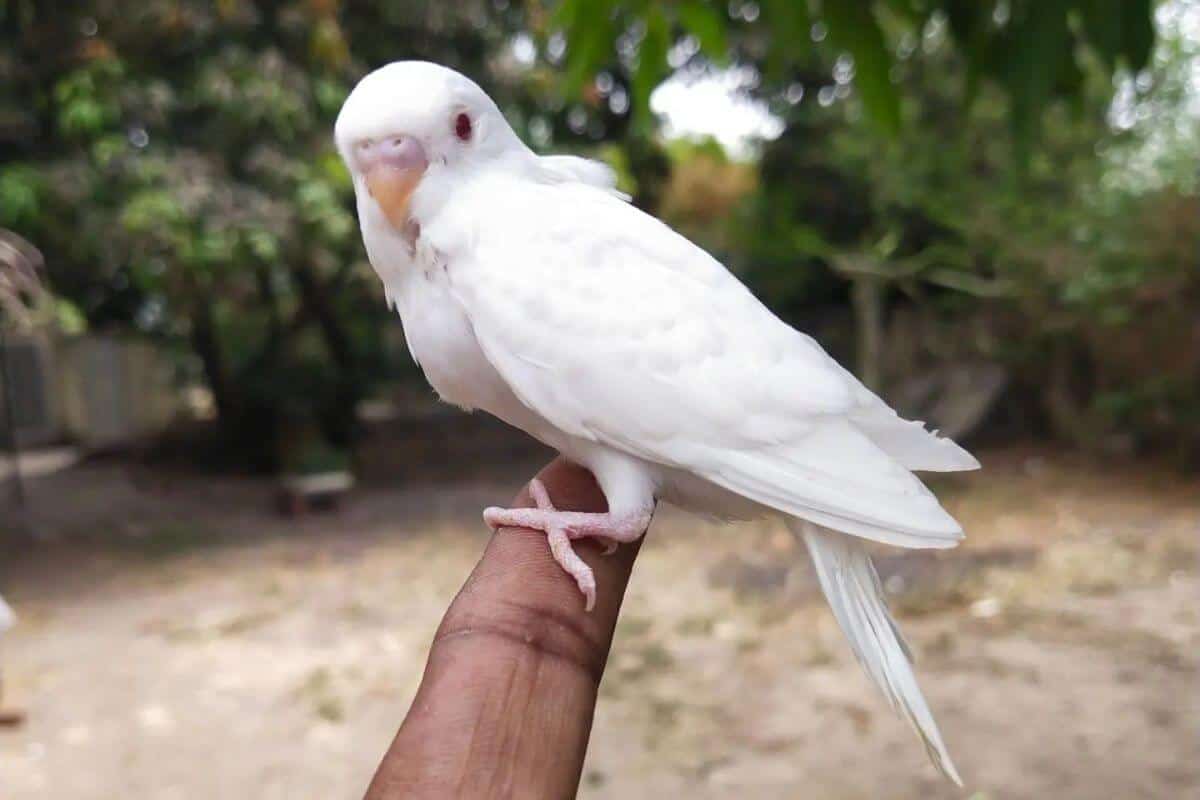

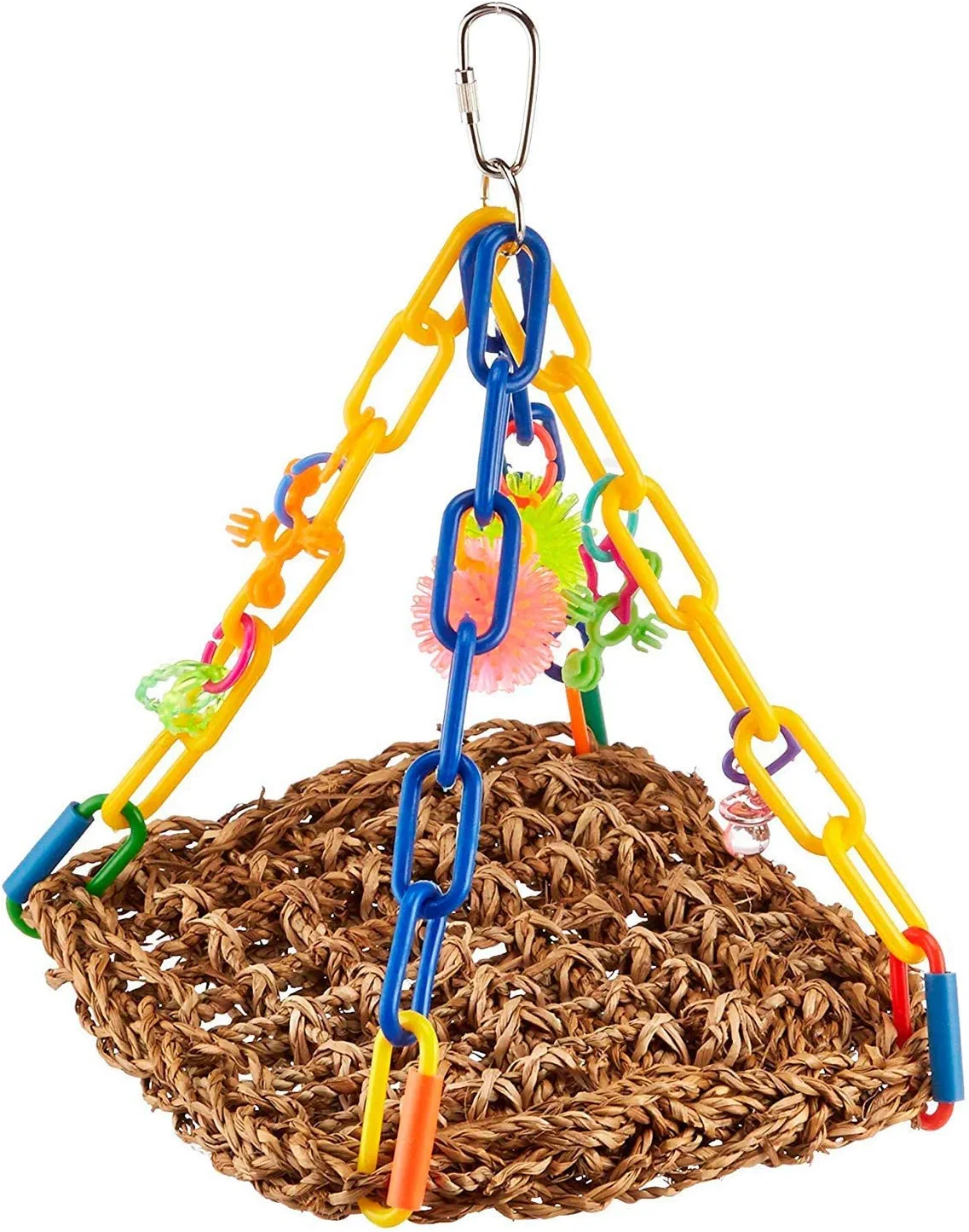
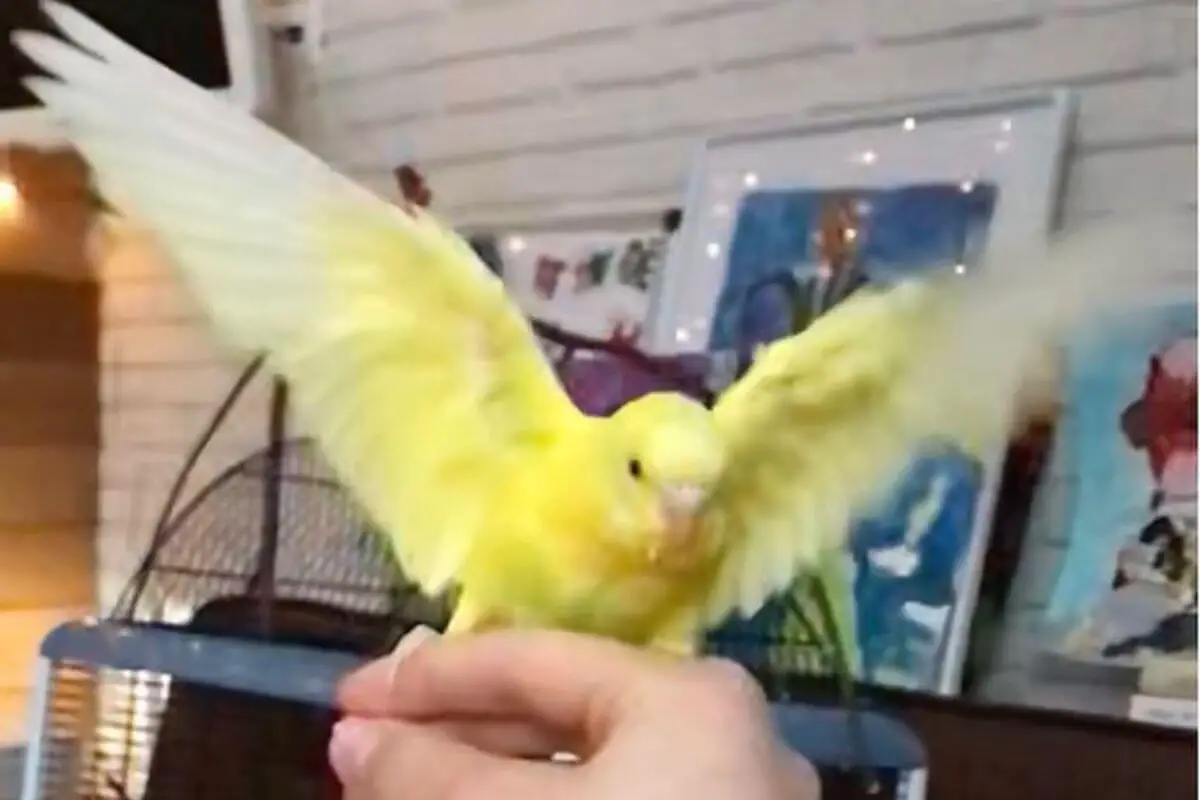
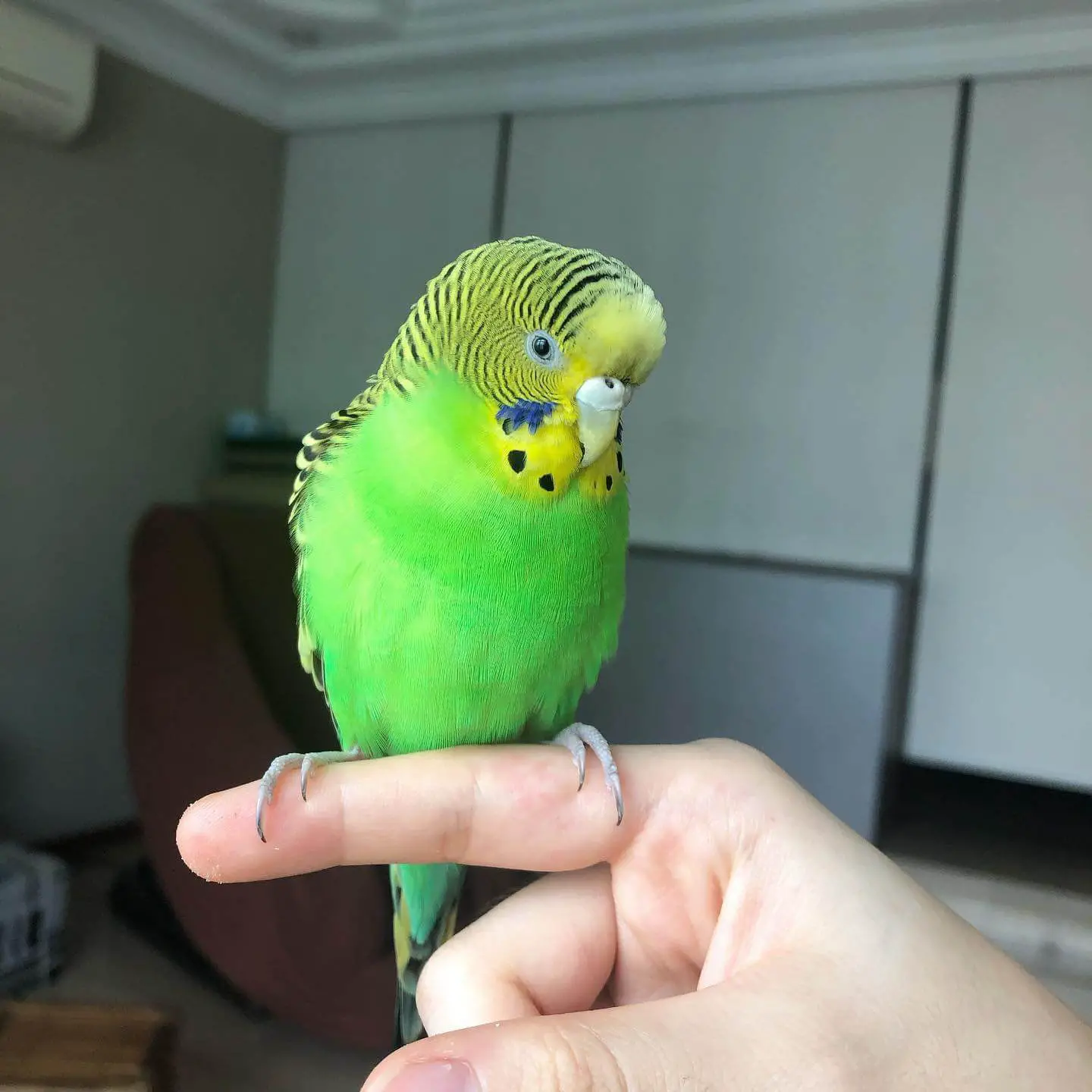
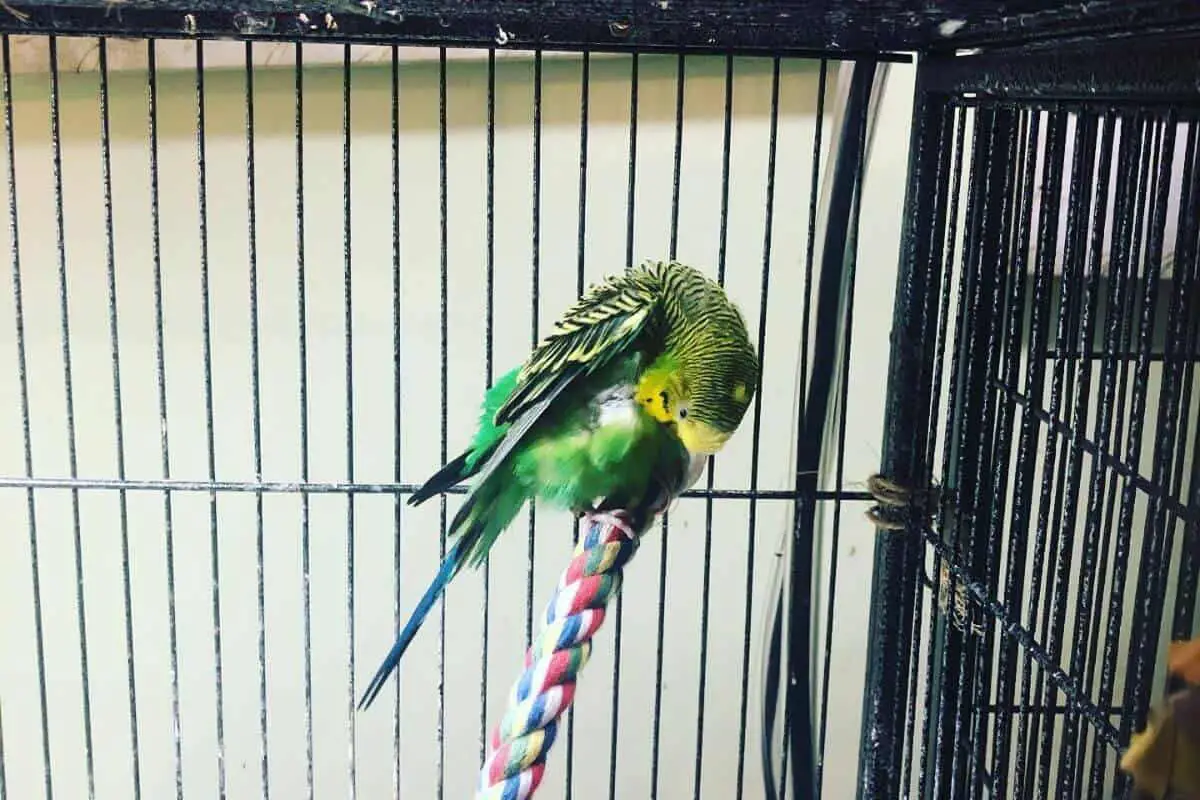
Leave a Reply